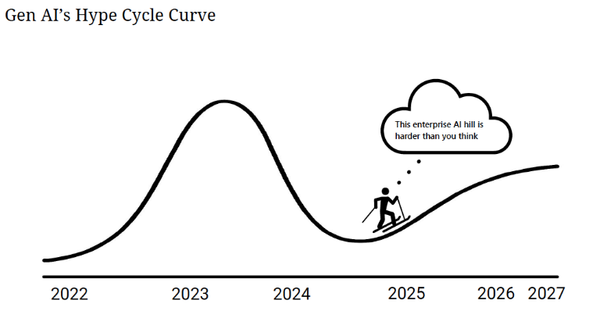Electrified - Issue 48
When the minority rules

Hi friends,
I hope you all enjoyed the extra hour of sleep.
Let’s get to it.
Peanut allergies impact 0.6–3% of the population, but it’s estimated that 65% of schools have some accommodation for kids with peanut allergies. Why?
The answer is something Nassim Nicholas Taleb called “the minority rule” whereby small (3–4% of the total population), but a virtuous group can force the entire population to submit to their preferences.
I choose a rather simple and light-hearted example, but the implications of this mental model are quite important.
Values in society don’t change on consensus. They change when the most intolerant group imposes their will on others. The most motivated emerge with new norms that are likely to be binary and stable.
Revolutions are unarguably driven by an obsessive minority. The entire growth of a society, including economic, comes from a small number of people. — Taleb
Minority rules occasionally create subconscious counterfactual biases. Look no further than organic foods. We’ve been trained to believe that the absence of an “organic” label means a given product is inferior or that GMO’s are present if there is an absence of a “no GMOs” label.
Can you imagine this happening with sustainable products?
There are two conditions that must be present in order to create an opportunity for minority rule to dictate to the majority.
The first is geography. The minority that imposes the rules on the majority must live within the general population. Ex. consumers with peanut allergies impact where peanuts served and most labels.
The second is cost. Manufacturing the product to comply with the minority rule cannot cost significantly more. The cost of not serving peanuts or adding a warning label is minuscule. In the same way, producing clean energy is no longer more costly than fossil fuels.
Surprisingly, there are few examples as it relates to energy. Auto-emissions are the most obvious ones. California sets the standard and manufacturers follow in spite of EPA rollbacks under the Trump administration.
If the minority rules, where does that leave the majority and how do we affect change?
The majority of American’s believe in man-made climate change and think we should do something about it. The popularity of the energy transition is clear and polls show the majority of Americans want to move to an economy powered by clean energy. So why have we been so slow to adapt until now?
The majority perspective requires drastic changes to energy supply, transportation, agriculture, etc.; however, few strong proponents of these policy changes are actually ‘walking the talk’ because of the difficulty and undesirability of these abstract policies in terms of personal impacts.
How many people do you know that are: vegan, don’t fly on airplanes, don’t use plastics, etc… and also believe in climate change? Not many, and it’s possible you never will.
Despite knowing climate change is a problem, for the average person change is simply too inconvenient — which makes technology and innovation, our best levers to a more sustainable future. Innovation is a minority premise — ~2.5% of us are innovators.
Markets evolve from asymmetric minorities with skin in the game. Energy will be no different.
Electrified Podcast
Last week on the podcast our guest was Tom Matzzie, founder and CEO of CleanChoice Energy. It’s a must listen for any startup operator and for anyone in consumer-facing energy.
Our conversation with @tommatzzie, CEO of CleanChoice Energy.
— Kevin Stevens (@kevindstevens) 1:02 PM ∙ Oct 21, 2020
-CAC: centering around customers
-Finding customers vs. finding transactions
-How a mission helps attract talent to a "boring" space
This is a must-listen for anyone interested in B2C energy.
electrified.buzzsprout.com/1289162/598258…
Links
1.
Due to pressure from shareholders, many banks have already taken steps to recognize climate risks. What's more controversial is how exactly this should be done and what kinds of policy tools should encourage the practice.
Some banking industry experts argue that the long span of climate change and inconsistencies in data across different industries make creating a set standard difficult, if not onerous, for banks.
👉 Climate Change a Problem for U.S. Banks' Investing Strategies
2.
“There are lessons learned that we can share,” said Bob Dixson, a retired postmaster who served as mayor during much of the rebuilding. “I totally believe that we’re a living laboratory here with a plethora of architectural design and sustainable environmental practices to share.”
“We tried to approach it in a practical way, not tree-hugger green, but economic green,” Janssen said. “Ramming stuff down people’s throats — especially in this part of the world — doesn’t work.”
👉 The town that built back green (highly recommend)
3.
Addressing climate change is the existential challenge for our generation — and decarbonizing human activity is an essential first step. How do we get there? Put simply: Electrify everything.
👉 Electrifying Everything: The Key to Decarbonization & A More Sustainable Future
Recent Investment Activity
Cognite, an Oslo-based industrial SaaS company, raised an undisclosed amount of Series A funding led by Accel at a valuation of $550 million.
Seatrec, a Monrovia, Calif.-based renewable energy company that harvests energy from temperature differences in the environment, raised $2 million in seed funding. Norge Larsonled the round and was joined by investors including Sunstone Management, Frontier Angels, SeaAhead’s Blue Angels, and Pasadena Angels.
Canvass Analytics, a Toronto-based provider of industrial AI solutions, raised US$6.5 million in Series A funding. Yamaha Motor Ventures led, and was joined by Real Ventures, BDC, EDC, and Viaduct Ventures.
Voltus, a San Francisco-based platform for electricity reduction among industrial customers, raised $25 million in a Series B funding. NGP Energy Technology Partners III led the round and was joined by investors including Prelude Ventures and Ajax Strategies.
WiTricity, a Watertown, Mass.-based wireless power transfer company, raised $34 million. Stage 1 Ventures led, and was joined by Mitsubishi.
Sinai Technologies, a San Francisco-based decarbonization software platform, raised $3.8 million in seed funding. Afore Capital led the round and was joined by investors including Abstract Ventures and Coelius Capital.
Aperio Systems, a Boston-based AI and machine learning (ML) data integrity platform to analyze and monitor industrial sensor data in real time raised at least $6M in a round led by National Grid Partners.
AiDash, a Santa Clara, CA-based an AI platform for operations and maintenance activities like vegetation management, remote monitoring and disaster management raised at least $6M in a round led by National Grid Partners.
💰Any deals we missed or you would like us to share? Submit them here.
What I’m thinking about
Specific knowledge is knowledge you cannot be trained for. If society can train you, it can train someone else and replace you. Specific knowledge is found by pursuing your genuine curiosity and passion rather than whatever is hot right now. - @naval
See you next weekend,
Kevin


